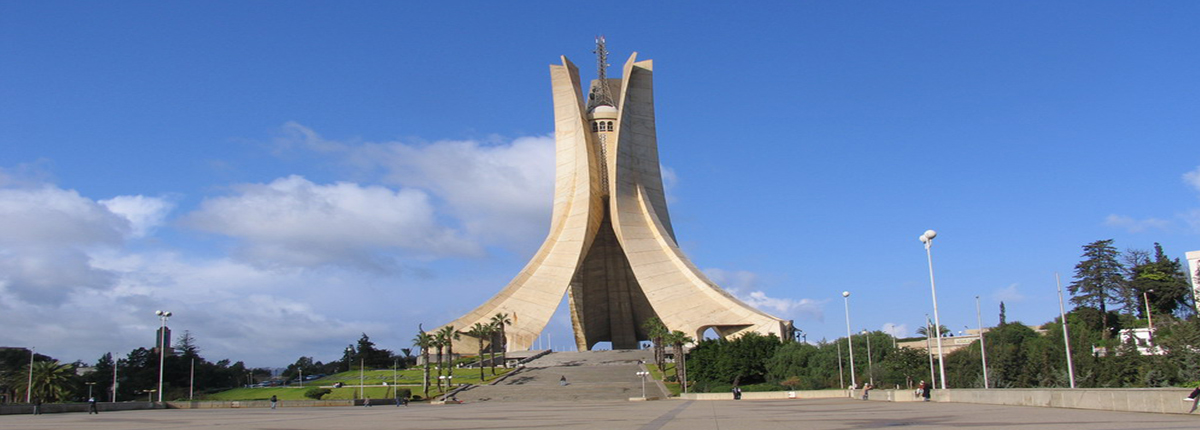About Algeria

Algeria, a gateway between Africa and Europe, became independent after 7 years fight for independence from France and more than one million and a half martyrs and a huge sacrifice from the Algerian people, in a struggle that is considered as one of the greatest Revolution against colonialism during the 2Oth century. As a developing country Algeria played a great role in the achievement of the independences of many other African and Third world countries. Algeria plays a great role within regional and international fora such as UNO, African Union, UMA, NAM, OlC, G77, OPEC, …
Algeria http://upload.wikimedia.org/wikipedia/commons/2/25/En-us-Algeria.ogg officially the People's Democratic Republic of Algeria is a country in the Maghreb. In terms of land area, it is the largest country on the Mediterranean Sea, in the Arab world and in the African continent, and the 10th-largest country in the world.
Algeria is bordered in the northeast by Tunisia, in the east by Libya, in the west by Morocco, in the southwest by Western Sahara, Mauritania, and Mali, in the southeast by Niger, and in the north by the Mediterranean Sea. Its size is almost 2,381,741 square kilometers and it has an estimated population of almost 36 million. The capital of Algeria is Algiers.
Algeria is divided into 48 provinces (wilayas).Algiers, Oran, Constantine, Annaba ,Tizi Ouzou, Ghardaia, Batna, Tamanrasset, Setif and Jijel are among several other Algeria's main cities.
 Algeria is composed of four principal sets of reliefs. To north, along the Mediterranean coast, the narrow plain extends from Algerian Tell. This discontinuous plain and of variable width (80 km to 190 km) as well as the contiguous valleys, shelter the large majority of the arable lands of the country. Limiting the coastal plain to the south, a vast whole of higher reliefs is observed: two significant East-West directed assembly lines (the Tellian Atlas in north, the Saharian Atlas and the Aurès in the south) frame an area of the desert high lands.
Algeria is composed of four principal sets of reliefs. To north, along the Mediterranean coast, the narrow plain extends from Algerian Tell. This discontinuous plain and of variable width (80 km to 190 km) as well as the contiguous valleys, shelter the large majority of the arable lands of the country. Limiting the coastal plain to the south, a vast whole of higher reliefs is observed: two significant East-West directed assembly lines (the Tellian Atlas in north, the Saharian Atlas and the Aurès in the south) frame an area of the desert high lands.
To the south of the Saharian Atlas the immense desert extends from the Sahara which contains the most beautiful saharian landscapes, as Hoggar and Tassili, two regions which by saving the remaining of very old civilization, are considered the largest opened museum in the world.
There are in fact several UNESCO World Heritage Sites in Algeria including Al Qal'a of Beni Hammad, the first capital of the Hammadid empire; Tipasa, a Phoenician and later Roman town; and Djemila and Timgad, both Roman ruins; M'Zab Valley, a limestone valley containing a large urbanized oasis; also the Casbah of Algiers is an important citadel.
ALGERIA AT A GLANCE






CLIMATE
The area of Tell, in north, is characterized by a Mediterranean climate, with hot and dry summers and soft and rainy winters. The average temperatures in summer and winter are respectively of 25 °C and 11 °C. The more one goes down towards the south, the more the climate becomes dry.
In some regions where it snows in the winter, the temperature goes down 0°.
The originality of Algeria is the fact that it offers a variety of climates similarly to a different kind of natural sights.
HISTORY
Historically, Algeria was first known as the Kingdom of Numidia whose most famous Kings were Syphax, Massinissa and Jugurta who ruled the Kingdom during the lll and the ll century BJC. Numidia became Roman province in 46 BJC after a war between Jugurta and the romans.
The Vandals invaded the roman North Africa 430 before the byzantine conquest in 533.
The byzantyne era finished with the arrival of lslam and the Arabs in 647. Many Muslim dynasties ruled the country from776to 1518: the Rostomides (776 to 909), the Fatimides(908 to 972), the Zirides (972 to 1148), the Hammadites (1007 to 1152), the Almoravides (1052 to 1147) the Almohades (1121 to 1235), the Zianides (1235 to 1 556).
The Ottoman era started in 1518 when Algiers was placed under the Ottoman authority by Barberousse who helped the rulers to fight the threat of the Spanish.
Algiers was then a recognized authority in the western Mediterranean and had established a huge naval fleet. Algiers has resisted many European offensives by the French, Spanish and English.
In 1830 the French succeeded in their attempt to occupy the country but the conquest of the whole country finished only in 1857 although struggle against colonialism has continued till after 1880 in different parts of the country led by great national heroes like Emir Abdelkader, Cheikh El Mokrani, Cheikh Bouamama and Lala Fatma N'Soumer.
During the 20th Century the National Movement, after tough efforts, led the Algerian people to its great Liberation war against the French in 1954 which finished in July 5, 1962,after a referendum of self determination.

ALGERIA - CHINA BROTHERHOOD
- September, 22nd, 1958, recognition by China of the Algerian interim government, while the struggle was still going on for the independence of the country.
- December 20th, 1958, Establishment of full diplomatic relations between China and Algeria.
- 1971, Algeria made significant and prominent contribution to restoring China's legitimate seat in the United Nations.
- November 6th, 2006, China and Algeria issued a joint statement on developing a strategic relationship.
THE AMBASSADOR
INVEST IN ALGEIRA
VISA
QUICK LINK
- Forms to download
- "12S" Birth Certificate
- Passport & ID Card
- Civil Status
- National Service
- Terminating Residency
- Students


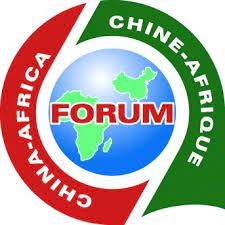
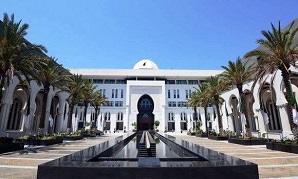
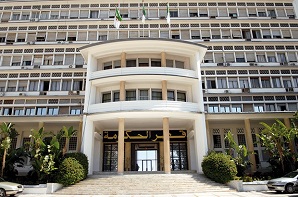
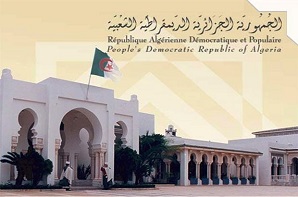
PHOTOmore

